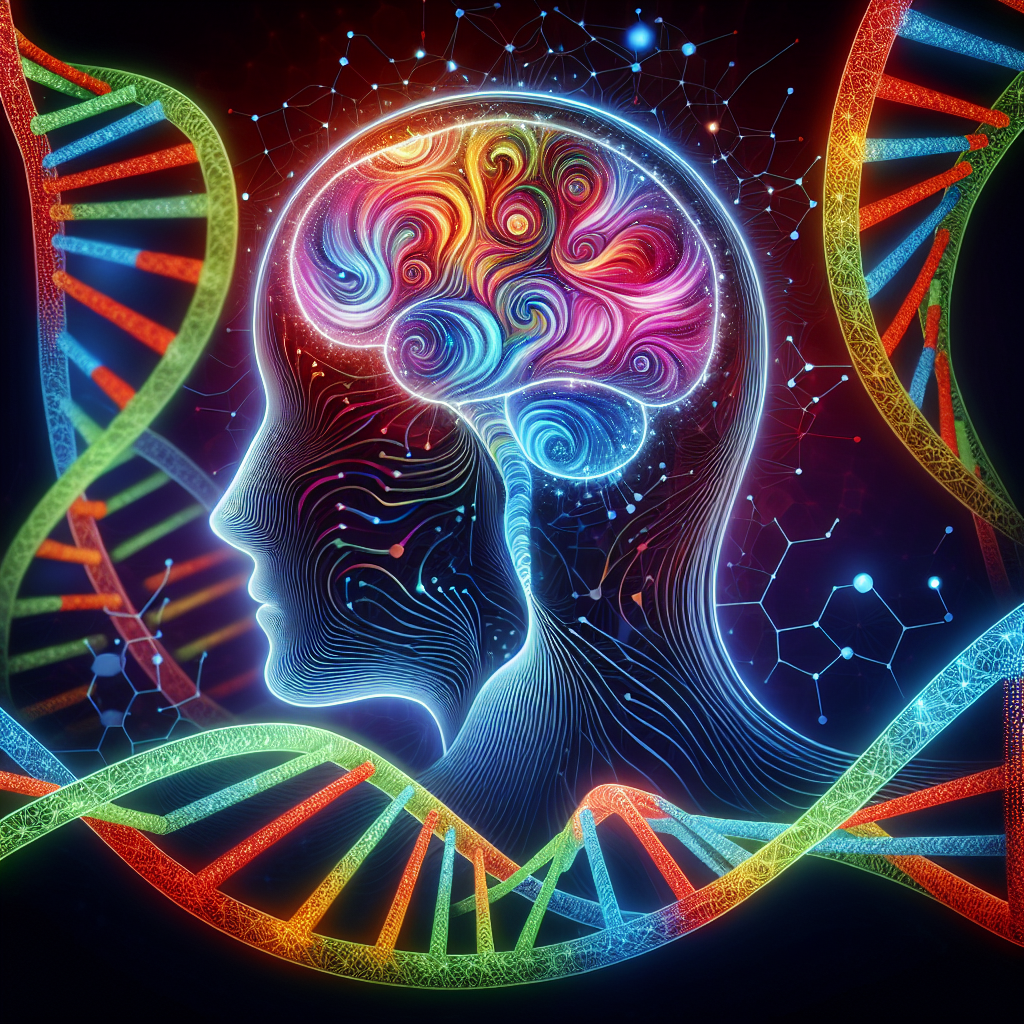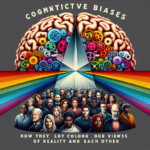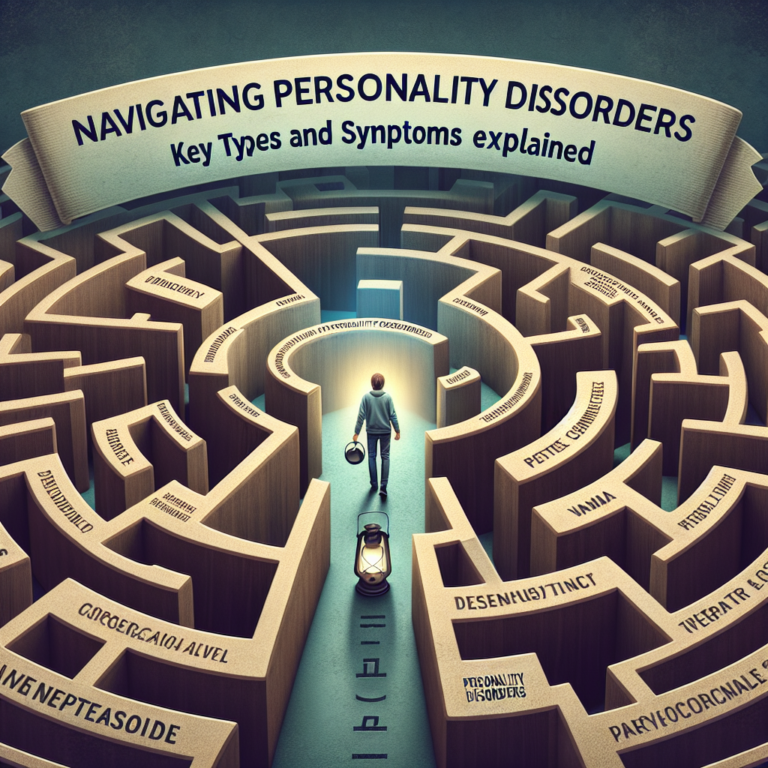
The DNA Connection: Unraveling Genetics and Mental Health Risks
Introduction
In recent years, the dialogue surrounding mental health has evolved dramatically, with research illuminating the intricate connections between our biology and psychological well-being. "The DNA Connection: Unraveling Genetics and Mental Health Risks" becomes an essential thread in this narrative, highlighting how our genetic makeup significantly influences our predispositions to various mental health disorders. Understanding this connection not only presents opportunities for effective treatments but also empowers individuals to take charge of their mental health.
The influx of scientific knowledge regarding genetics reveals a horizon of possibilities—ranging from early diagnosis to personalized treatment plans. But how do our genes entwine with our mental health? What insights can we parse from the emerging fields of psychogenetics and epigenetics? In this article, we delve deep into the intricate tapestry of DNA and its undeniable ties to mental health, illuminating findings, case studies, and actionable insights that hold potential for everyone.
The Genetic Blueprint: Understanding DNA’s Role in Mental Health
What is DNA?
Deoxyribonucleic acid (DNA) serves as the blueprint for all living organisms, encoding the necessary information for growth, development, and functioning. In the realm of mental health, DNA sheds light on why some individuals are more susceptible to disorders like depression, anxiety, schizophrenia, or bipolar disorder while others may remain unaffected.
Genetic predisposition does not equate to deterministic outcomes. As we explore the complexities of "The DNA Connection: Unraveling Genetics and Mental Health Risks," it is vital to note the roles of environment, lifestyle, and personal experiences. Here’s a quick overview of how DNA influences mental health:
| Factor | Description |
|---|---|
| Heritability | Genetic contribution to an individual’s risk of developing a disorder. |
| Genetic Mutations | Variants that may predispose individuals to specific mental health conditions. |
| Epigenetics | How environmental factors can alter gene expression without changing DNA sequences. |
Case Study: The Family-Genetic Connection in Bipolar Disorder
A poignant illustration is the familial patterns observed in bipolar disorder. Research shows that if one identical twin has bipolar disorder, the other twin has about a 70% chance of developing the condition, compared to just 10% in the general population. This case underlines the powerful "DNA Connection" as it illustrates how inherited genetic markers play a crucial role in susceptibility.
Genetic Risk Factors for Common Mental Health Disorders
Depression and Anxiety
Both clinical depression and anxiety disorders are influenced by genetic factors. Studies have demonstrated that individuals with a family history of mental illness face higher risks. The identification of specific genes linked to these conditions has opened avenues for targeted therapies.
Specific Genes of Interest
SLC6A4: This serotonin transporter gene has been studied extensively regarding depression. Variations can affect serotonin levels and mood regulation.
BDNF: Brain-Derived Neurotrophic Factor is integral to neuronal growth and survival, with implications for mood disorders.
- COMT: The Catechol-O-Methyltransferase gene has associations with anxiety and stress response.
Case Study: The Role of SLC6A4 Variants in Depression
A meta-analysis of various studies revealed that individuals with certain variants of the SLC6A4 gene had a markedly higher risk of developing major depressive disorder in stressful circumstances. This finding emphasizes the importance of addressing both genetic and environmental components within therapeutic contexts.
Schizophrenia and Psychosis
Schizophrenia remains one of the more elusive disorders, but genetic research indicates that variations in numerous genes contribute to its risk. The genetic loading can contribute to neurotransmitter imbalances leading to symptoms of psychosis.
Analyzing Genetic Data: The Size of the Connection
Research utilizing large genetic databases has unearthed insights into the polygenic nature of schizophrenia, where hundreds of genes interact to elevate risk. Likewise, understanding variations can help inform tailored approaches in treating those at risk.
Environmental Influences: The Epigenetic Factor
What is Epigenetics?
Epigenetics explains how environmental factors can shape gene expression without altering the DNA sequence itself. Stress, trauma, and even diet can lead to epigenetic modifications impacting mental health.
Key Points:
- Environmental Stressors: Childhood trauma or ongoing stress can result in epigenetic changes linked to anxiety and depression.
- Resilience Factors: Positive experiences—like strong familial support—can mitigate adverse genetic influences.
Case Study: Epigenetic Influences in Childhood Trauma
One groundbreaking study tracked children exposed to adverse childhood experiences and their epigenetic modifications. The research revealed altered patterns in glucocorticoid receptor expression, which could predict susceptibility to anxiety and depressive disorders later in life.
Chart: Environmental Factors and Gene Expression
| Environmental Factor | Impact on Gene Expression |
|---|---|
| Trauma | Alters neurobiological pathways linked to stress. |
| Nutrition | Affects mental health linked through gene expression. |
| Social Support | Positive relationships may positively influence expression patterns. |
Integrating Genetic Insights into Clinical Practice
The Role of Genetic Testing
Genetic testing is becoming increasingly relevant, providing insights into an individual’s predisposition to mental health disorders. This knowledge allows clinicians to tailor treatment approaches that are more precise and effective.
Potential Uses of Genetic Testing:
Identifying Risk: Understanding potential vulnerabilities to guide preventive care.
- Personalized Medications: Tailoring psychiatric medications based on genetic profiles to optimize efficacy and reduce side effects.
Innovations in Personalized Treatment Approaches
As the field evolves, an emphasis on integrating genetics into treatment plans can greatly enhance outcomes. For instance, personalized therapy strategies based on genetic profiles may include:
- Medication Management: Using pharmacogenomics to determine which antidepressants work best for a patient.
- Psychotherapeutic Approaches: Tailoring cognitive-behavioral strategies to consider an individual’s genetic predispositions.
Case Study: A Personal Narrative
Take Sarah, a 32-year-old woman with a family history of depression. By undergoing genetic testing, she discovered her heightened sensitivity to selective serotonin reuptake inhibitors (SSRIs). Her clinician adjusted her treatment plan to include an alternative medication that aligned better with her genetic profile. As a result, Sarah experienced significant improvement in her symptoms and overall quality of life.
Future Directions: The DNA Connection and Its Implications
Exploring New Frontiers in Research
Ongoing research focuses on understanding the complexities of the genome and its interaction with environmental factors. The discoveries gleaned from studying gene-environment interactions provide a roadmap for future therapies.
Encouraging Wellness through Genetic Understanding
Understanding "The DNA Connection: Unraveling Genetics and Mental Health Risks" inspires a proactive approach to mental health. Encouraging individuals to explore both genetic and environmental factors can foster resilience, leading to more holistic wellness strategies.
Conclusion
The landscape of mental health continues to shift dramatically as we explore "The DNA Connection: Unraveling Genetics and Mental Health Risks." With genetic insights paving the way for personalized approaches, individuals can become empowered ambassadors of their mental health, understanding that while genetics may influence predispositions, they certainly do not dictate outcomes.
The take-home message? Knowledge is power. By arming ourselves with understanding and advocating for mental health, we can forge paths toward better lives, irrespective of our genetic blueprints.
FAQs
1. How much of mental health is hereditary?
Research suggests that genetics can account for approximately 30-60% of the risk of developing mental disorders.
2. Can mental health disorders be cured through genetic treatment?
While an understanding of genetics enhances treatment efficacy, mental health disorders require holistic approaches, integrating therapy, lifestyle changes, and medical interventions.
3. What is the role of environmental factors in mental health?
Environmental factors such as stress, trauma, and lifestyle choices significantly influence gene expression and can modify mental health outcomes.
4. Is genetic testing beneficial for everyone?
Genetic testing is most beneficial for individuals with a strong family history of mental health disorders, guiding personalized treatment strategies.
5. How can I improve my mental health if I have a genetic risk?
Engaging in supportive therapy, maintaining a healthy lifestyle, fostering strong relationships, and employing stress-management techniques can improve mental health outcomes regardless of genetic predisposition.
Through empowering conversations and thorough understanding of "The DNA Connection: Unraveling Genetics and Mental Health Risks," we can take significant strides toward a brighter, healthier future.











